Sune hung up his carpentry tools to pursue his academic dream: "I had one shot to change my life"
42-year-old PhD student Sune With Christensen has just started his research project on the ethics of war and autonomous weapons, which he has worked hard to put in place over the last four years. It’s not easy to swap a carpentry career for four years of SU and four years as a PhD student when you already have a family and a mortgage.
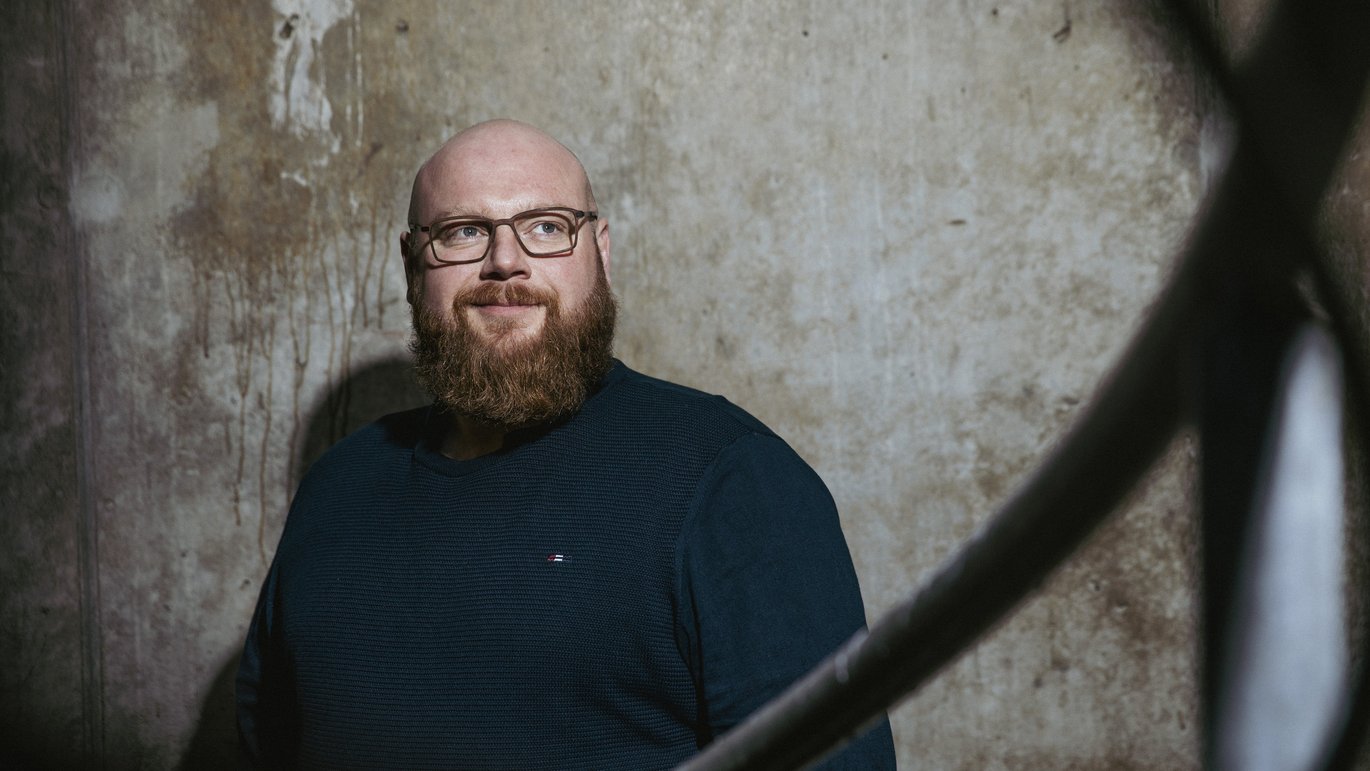
This article is part of a new Omnibus series that explores the many paths to a PhD – and not least the hopes and dreams of grad students about the future that awaits them on the other side.
Would you like us to tell your story too? Or know someone else who’d be interested in sharing their story with us? Write to us at omnibus@au.dk.
This article is translated by Sarah Jennings
42-year-old PhD student Sune With Christensen is in his office on the fifth floor of Nobel Park looking out onto the snowy roofs nearby. By the window is his colleague Lasse, with whom he shares his work day and his office. Space is tight. Yet Sune has managed to add a personal touch to the room.
On top of a bookshelf housing an extensive collection of philosophical works, two LEGO constructions of R2-D2 and Darth Vader from the Star Wars franchise stand out. The figures were gifts from his school and university friends, who thought they were perfect presents to celebrate Sune being awarded a PhD position at the Department of Philosophy and History of Ideas. As a member of the department, Sune will spend the next four years investigating artificial intelligence, robots, warfare and the ethical issues associated with these topics.
“R2-D2 is the perfect example of a piece of artificial intelligence that makes only good and loyal decisions. Whereas Darth Vader is more like the evil cyborg figure, the Terminator,” explains Sune With Christensen.
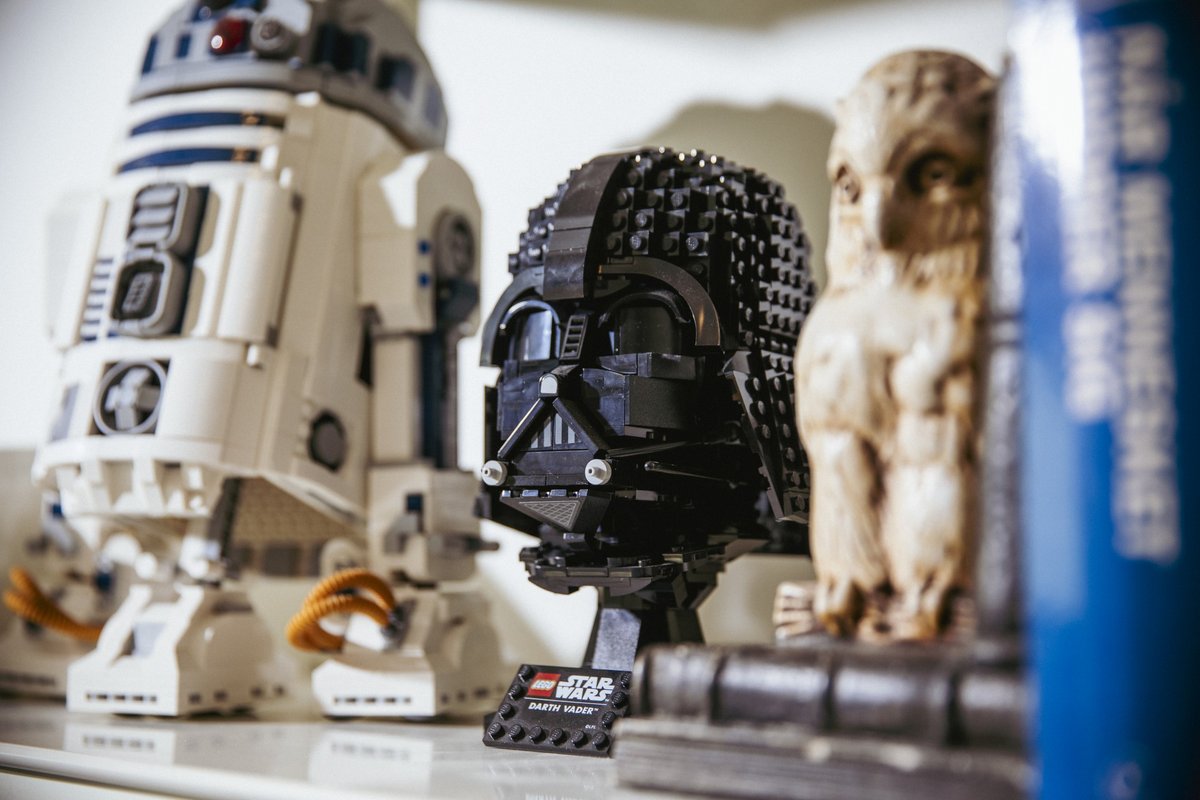
Sune With Christensen will be researching the ethics of war and autonomous weapons. A topic that has run through most of his university work until now; from his Bachelor’s project to various exams and now his PhD, which he is taking as part of the 4+4 model. On this model, the final year of his Master’s degree counts as the first year of his PhD programme. And even though Sune’s academic career until now has been straightforward, the path leading to it was anything but.
Sune was 38 years old when he first set foot on campus as a Bachelor’s student in 2019. After finishing school in 2001, he trained as a carpenter and has worked in the trade ever since. He lives with his wife and their two sons, aged 14 and 16, in Sabro:
“It’s been quite unusual starting here. And it’s been particularly unusual for my fellow students to have an actual adult sitting next to them in the lecture theatre. After all, they are closer to my children’s age, and I’m closer to their parents’ generation. But thankfully that didn’t seem to matter when it came to our academic collaboration.
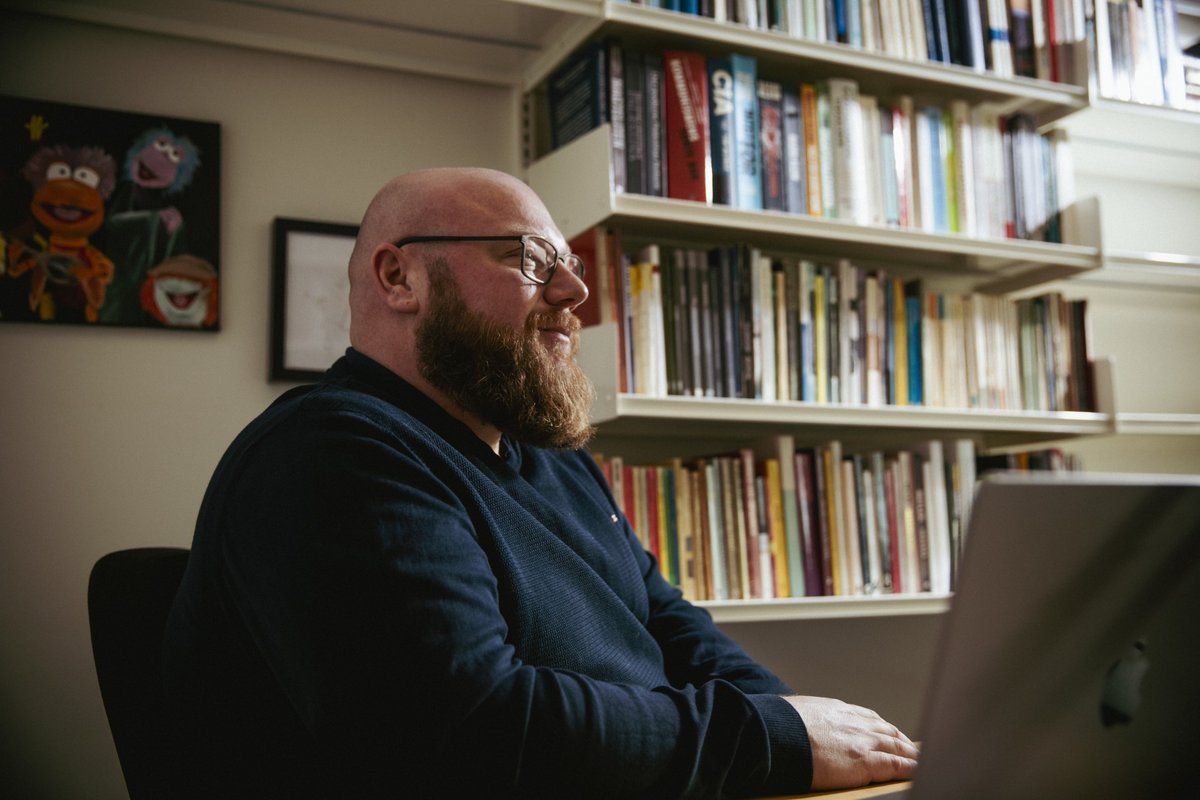
P1 ALWAYS PLAYING ON THE BUILDING SITE
Even though Sune enjoyed working with his hands, carpentry didn’t fuel his interest in the bigger societal and political issues. So he always listened to P1 whilst working on building projects in Aarhus, after which he and his boss would have heated discussions in their break about everything the idiots had said on the radio, as he puts it:
“I have always been very interested in politics and societal issues, but I’ve always wanted to delve a bit deeper. I’m not too concerned with how long the period of unemployment benefit should be. But I’m very interested in what it says about your view of humanity if you claim, for example, that people will work harder if their benefits are reduced.”
TRANSFER WINDOW
After more than a decade in the carpentry trade, he realised he’d reached the end of the road with the profession:
“I was working as a carpenter but, in my head, there was always something else going on,” he explains.
That feeling – combined with an old rugby injury that wouldn’t go away and a housing market that gave us more space in our budget – opened up a window for me to change careers. Sune dusted off his old exam certificate and saw that his average grade allowed him to apply for a place on the philosophy programme at Aarhus University. In 2019, he was offered a place:
“It felt crazy to be applying from SU at the age of 38. I had one shot to change my life and to get an education that could lead to a different type of job,” explains Sune With Christensen.
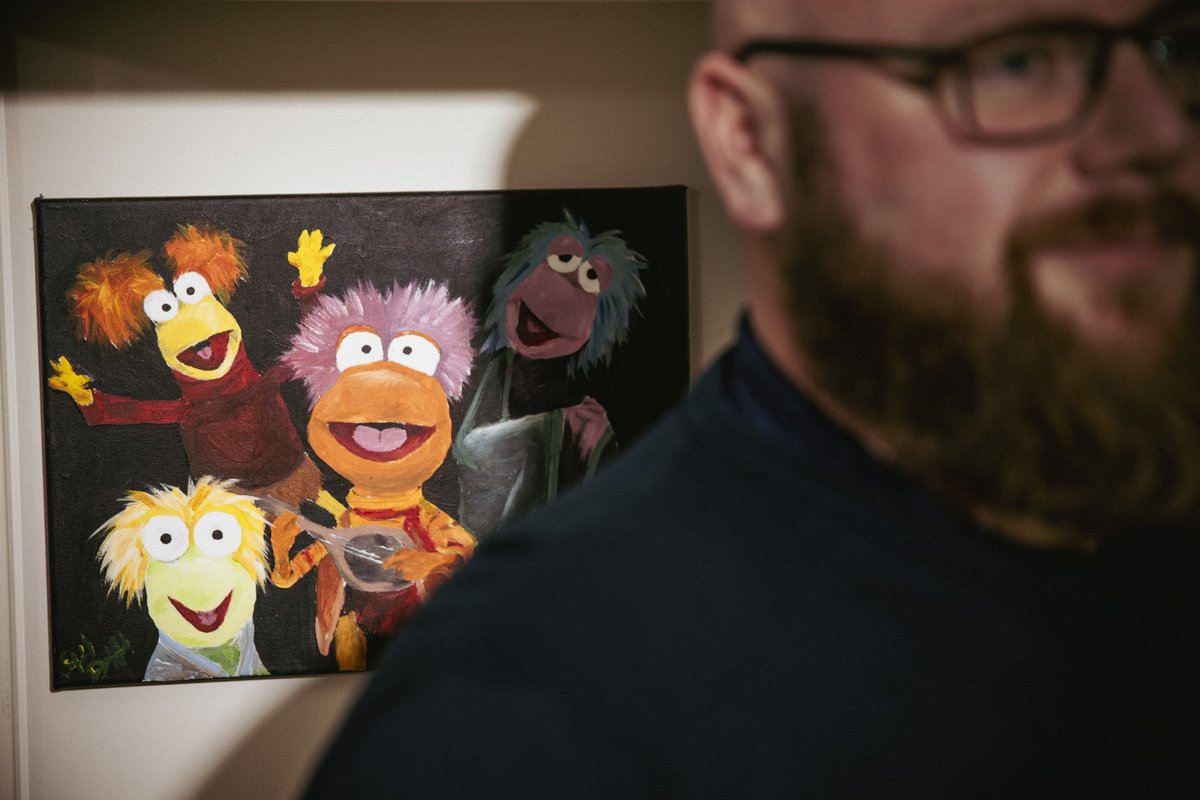
HIS OUTRAGE TRIGGERED HIS PROJECT
It wasn’t long before Sune realised which research area he was most interested in. In his ethics course, he studied the ethics of war, and one of the hot topics was autonomous weapons – machines, such as drones, that use artificial intelligence to select and attack targets without human intervention or authorisation. When the algorithms in such a machine become complicated enough, it takes on a black box character, where it can be difficult even for the programmer to understand why and how the machine reaches certain conclusions, such as what is a target and when to fire shots. When Sune realised that autonomous weapon systems were already being used in warfare, he was stunned:
“I was simply outraged. My basic argument was that the law of armed conflict does not allow you to subject the enemy or the civilian population to indiscriminate attacks. In other words, arbitrary acts of violence. And because of this black box phenomenon, whereby the algorithm can come to conclusions on its own and can make mistakes, I believe that flying a drone over a civilian population can potentially lead to arbitrary violence,” he explains.
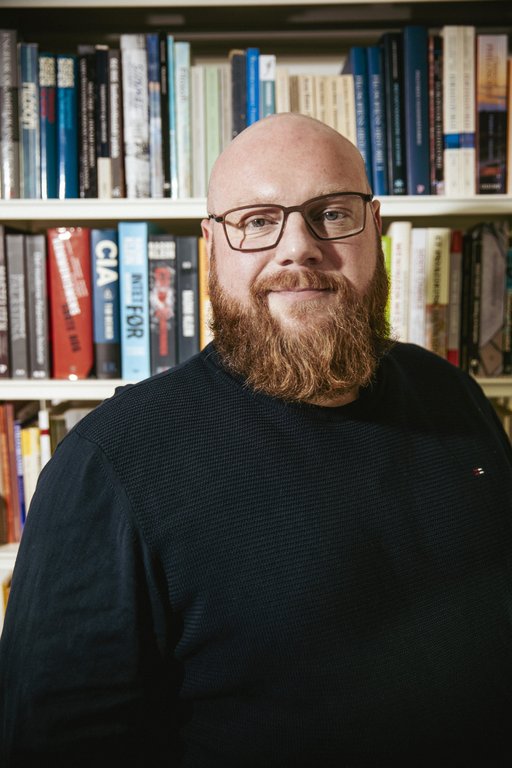
THE QUESTION OF A JUST WAR
His outrage and disbelief led him to write a Bachelor’s project and now a PhD on the topic of autonomous weapons systems. Over the next four years, Sune will examine three fundamental ethical questions regarding the use of these systems.
First, he will ask how this new weapons technology can give meaning to the principle of a just war when war is no longer something that is fought between people, which, in his view, challenges the basic conditions and rights that apply within the laws of war:
“The rights of war rely on the fact that the soldiers on the battle field are in a mutual situation: They are in mortal danger, have a duty to fight and a right to kill. They can do so with impunity because war involves the risk of losing their life. So if one side is a machine that can be dispensed with and replaced, and is therefore not at risk, how can we apply the principle of a just war? There is simply a contradiction when war becomes risk-free," explains Sune With Christensen.
Second, he will examine how the use of autonomous weapons instead of soldiers on the battlefield will change our perception and image of the common soldier – and thus the soldier's ethos. Thirdly, he will explore how autonomous weapons can potentially lead to a dehumanisation of military targets, as the decision between life and death is no longer made by a human, but instead by a machine, where the human is reduced to a specific set of sensor data:
“To put it bluntly, for autonomous weapons, it doesn't matter whether it's a tree or a person, and in principle, it doesn't matter whether it's a group of soldiers or a group of children. If the sensor data meets the parameters, it will fire.”
According to Sune With Christensen, it is impossible to give definitive answers to these questions, but he hopes that his research will help nuance the debate and raise awareness of the ethical issues when making recommendations and rules for the use of this type of weapons technology. Because, now that we have the technology, it can also become difficult to defend not using it and instead risking soldiers’ lives, he says:
“It also sounds absurd to tell a soldier’s family that we could have sent a drone but that we sent their loved one into battle instead. But, at the same time, it seems absurd to say: Here is something that it’s worth going to war for but not worth dying for. War has to hurt in some form or another,” he explains.
APPLYING FOR A PHD IS GRUELLING
Sune With Christensen has worked determinedly towards his PhD. The Department of Philosophy and History of Ideas at the School of Culture and Society does not offer specific PhD positions, nor is it affiliated with a specific research centre. Sune has built his project and idea from scratch and wrote his application on his own initiative:
“The PhD application process is enthralling but also gruelling. The time you spend writing an application is completely disproportional to the likelihood of getting a position. I spent more time on my PhD application than on all my other exams put together,” he concludes.
“It demands a huge amount of self-motivation, because nobody is going to tap you on the shoulder and encourage you to apply. But a PhD also costs a lot of money, so I think you need to show the university that you dare to throw yourself into putting the project together yourself, and you also get to know the research field by doing all the ground work on your own.”
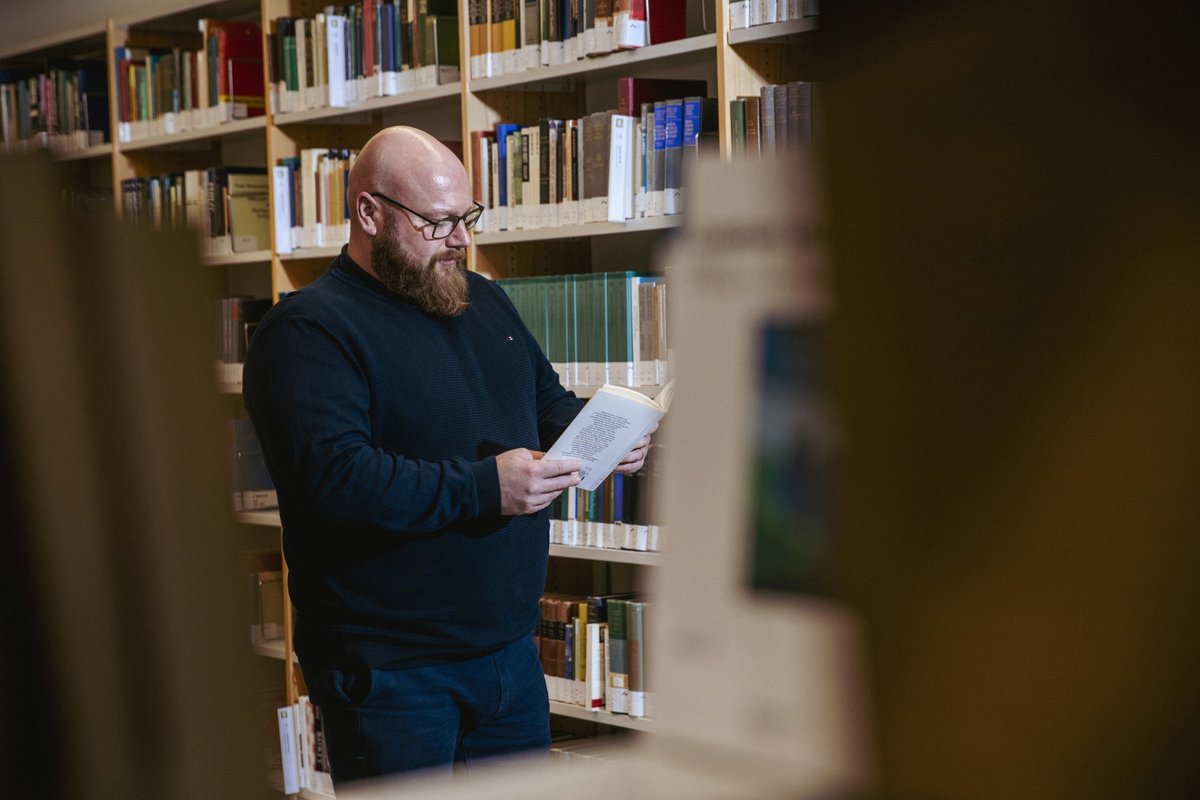
HERE TO STAY
The idea of writing a PhD didn't come out of the blue or dawn on him gradually as he studied for his BA. It was always his plan that his degree would lead to a PhD and, ultimately, to a career in the world of academia.
“I will stay in the ivory tower until they call me from the Danish Council of Ethics when I’m 75. No, on a serious note, I think it would be really great to get the chance to be an associate professor, for example.”
When he reflects on it, he would really like to be able to teach and have lots of contact with students. Whereas a career in the private sector is less attractive:
“I fear I will end up working in an HR department somewhere writing up a set of values that are only designed to make the company look good or create growth.”

